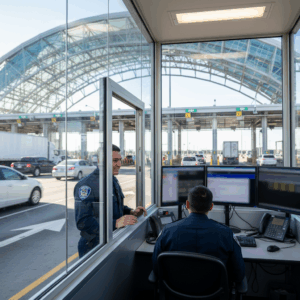Published: October 28, 2025 PT
Don’t risk your case with unverified services. We’ll match you with a licensed immigration lawyer or accredited representative.
Find My Lawyer →Free case matching. No obligations. Only verified professionals.
TL;DR
- The immigration enforcement focus is moving from border zones into U.S. cities.
- This shift raises questions about local impacts, civil-liberties, and how the law keeps up.
- Communities, advocates, and policymakers must assess how to balance enforcement with rights and due process.
Why now?
The administration has signalled it is not satisfied with current deportation numbers. Interior enforcement—inside the U.S.—is emerging as the next frontier. The move from the border to urban centres is illustrated in Chicago, where federal agents under command of Border Patrol official Gregory Bovino faced legal scrutiny over tactics. See the court hearing details in our previous article.
What this shift means
When enforcement moves into cities, local communities feel it quickly. Residents report increased anxiety. Local government and legal-aid groups raise concerns about daily life, access to services, and relationships between immigrant communities and local institutions. The line between immigration enforcement and community policing becomes blurred.
What cities and individuals should know
For cities: They should anticipate heightened federal operations and prepare community-outreach and legal-assistance frameworks. For individuals: Knowing your rights is key. If you’re in an area targeted for enforcement, review the resources we provide on rights and legal representation. See our guide: Know Your Rights.
Opinion: balancing enforcement and trust
Enforcement serves a public-safety role. But when it expands rapidly inside communities, it risks eroding trust if not paired with clear communication, oversight, and respect for lawful process. The court’s intervention in Chicago sends a signal: enforcement is not unchecked. We need systems that protect both the rule-of-law and civil rights.
Need help choosing an Immigration Lawyer?
We’ll connect you with a verified immigration lawyer who fits your case and location.
Start Free Case Review →Frequently Asked Questions
How is interior enforcement different from border enforcement?
Border enforcement happens at ports of entry or along the U.S. border. Interior enforcement occurs inside U.S. cities and towns, potentially involving workplaces, homes or other sites. The legal and community context is different.
What rights do individuals have when enforcement happens in cities?
Individuals have protections under U.S. law—such as the right against unreasonable searches and seizure. They also have immigration-law rights (see our Know Your Rights guide). If you’re uncertain, consult a lawyer.
How can local governments respond?
Communities can engage with federal agencies, provide legal-aid resources, inform residents about rights, and monitor the impacts of enforcement actions on trust and public-safety cooperation.
Find a Verified Immigration Lawyer
Related Reading
- Common Myths About Undocumented Immigrants
- Find an Immigration Lawyer
- Know Your Rights (Extended Guide)
Find a Verified Immigration Lawyer Near You
Avoid scams. Get help from licensed professionals who understand your case.
Get Matched Now →Free case evaluation. We are not a law firm — we connect you with trusted, verified lawyers.
